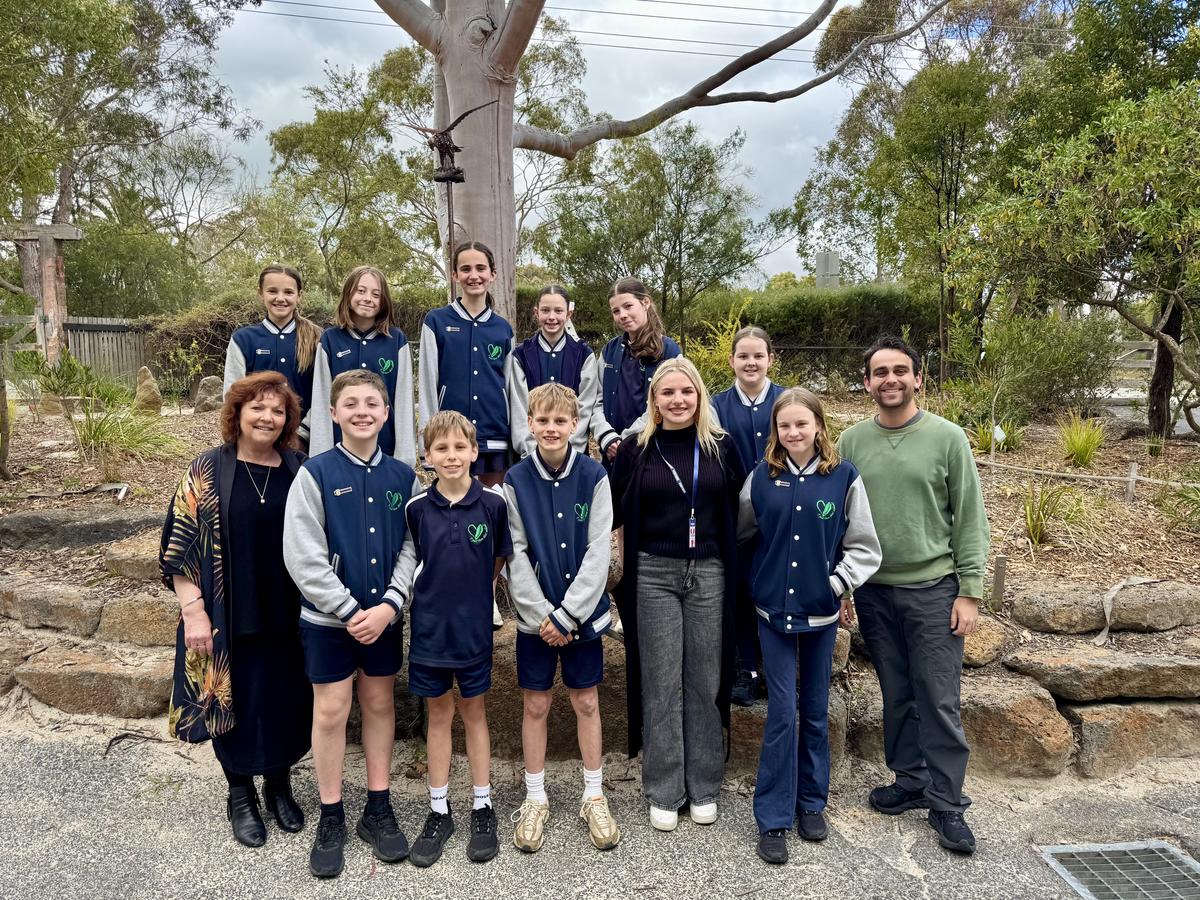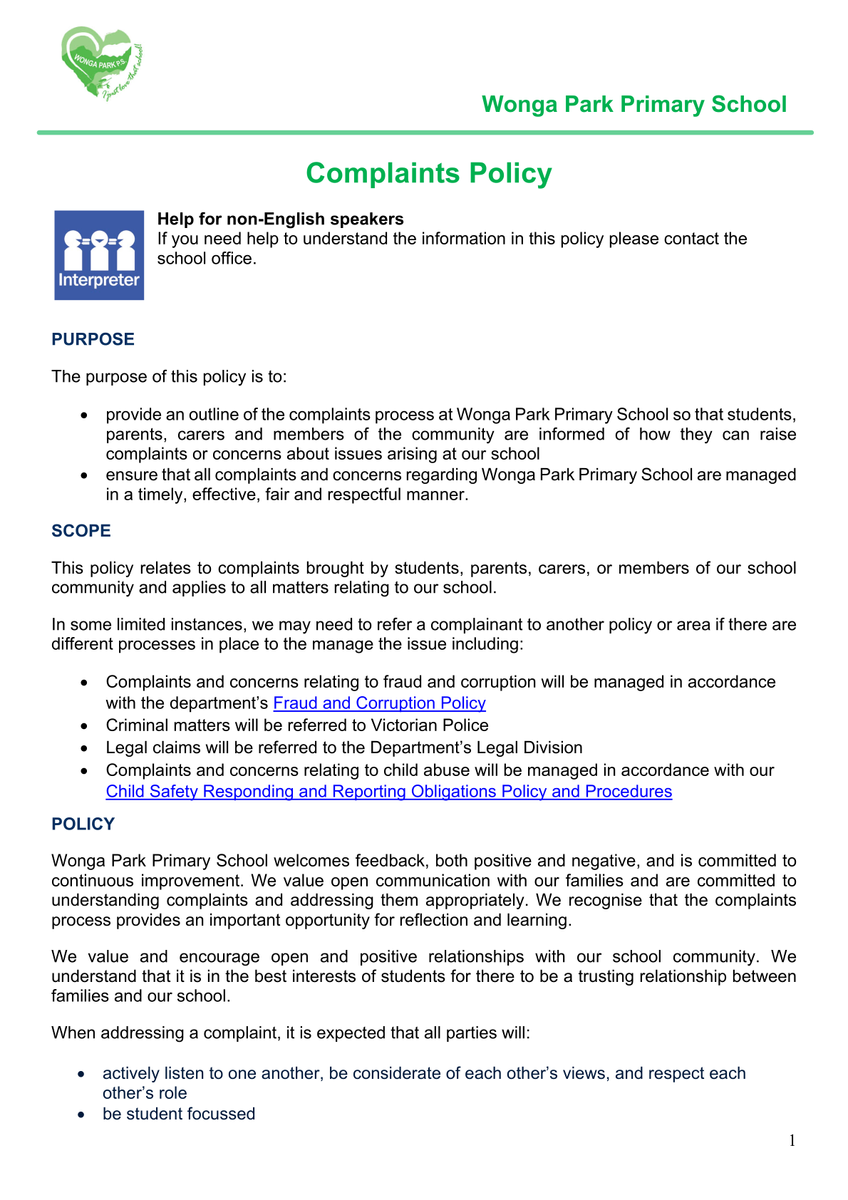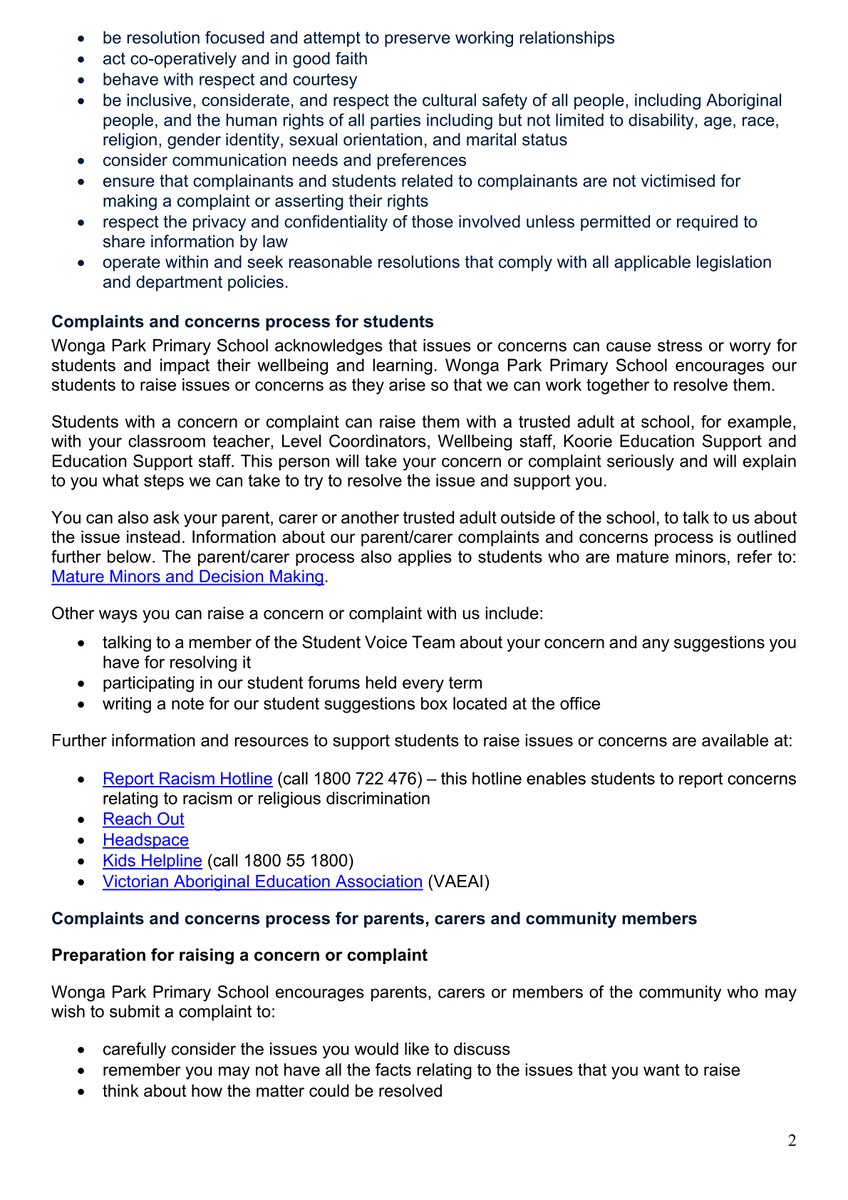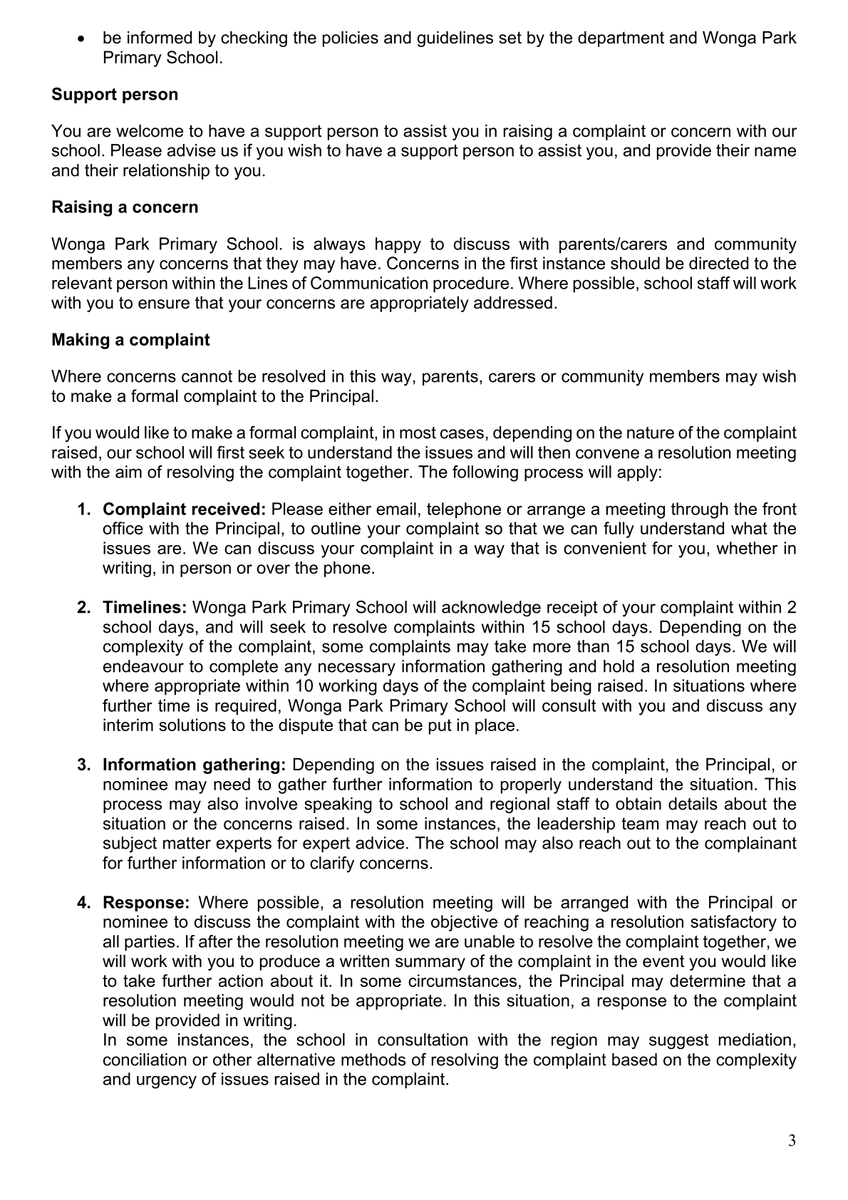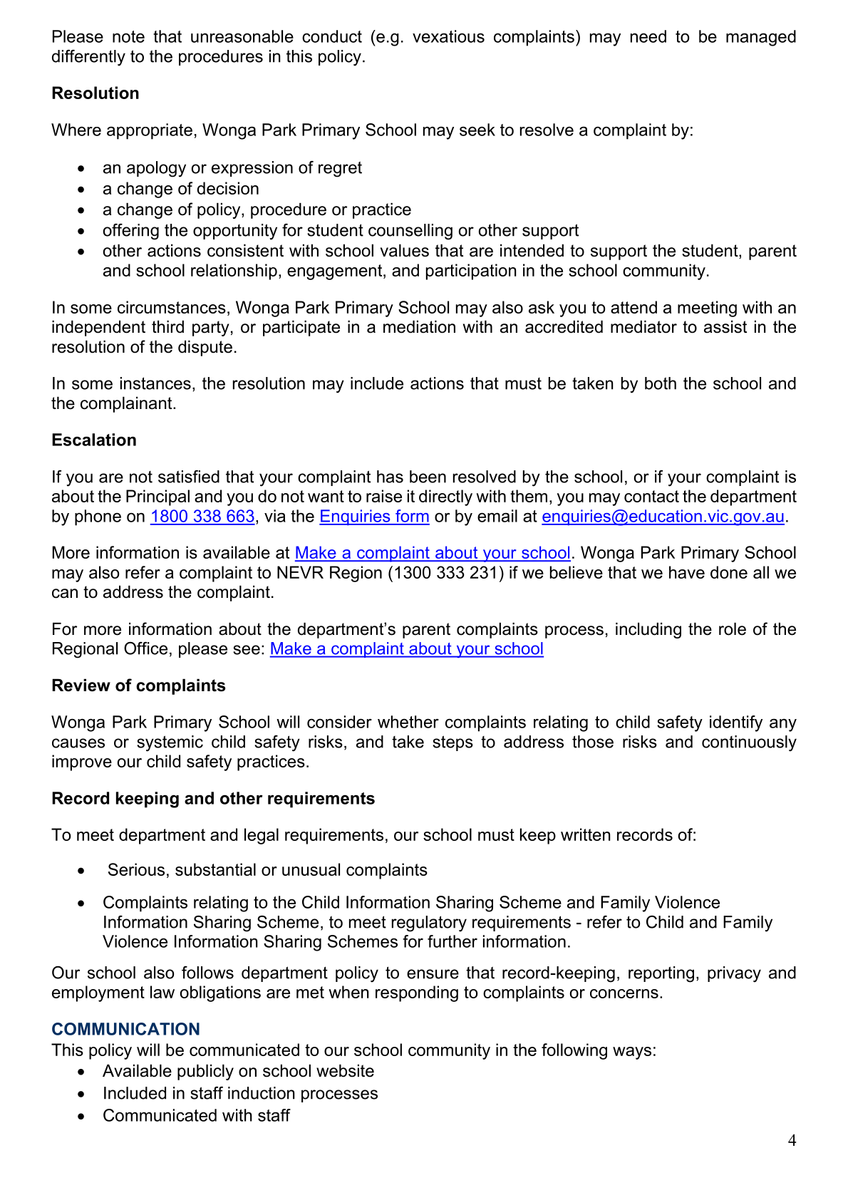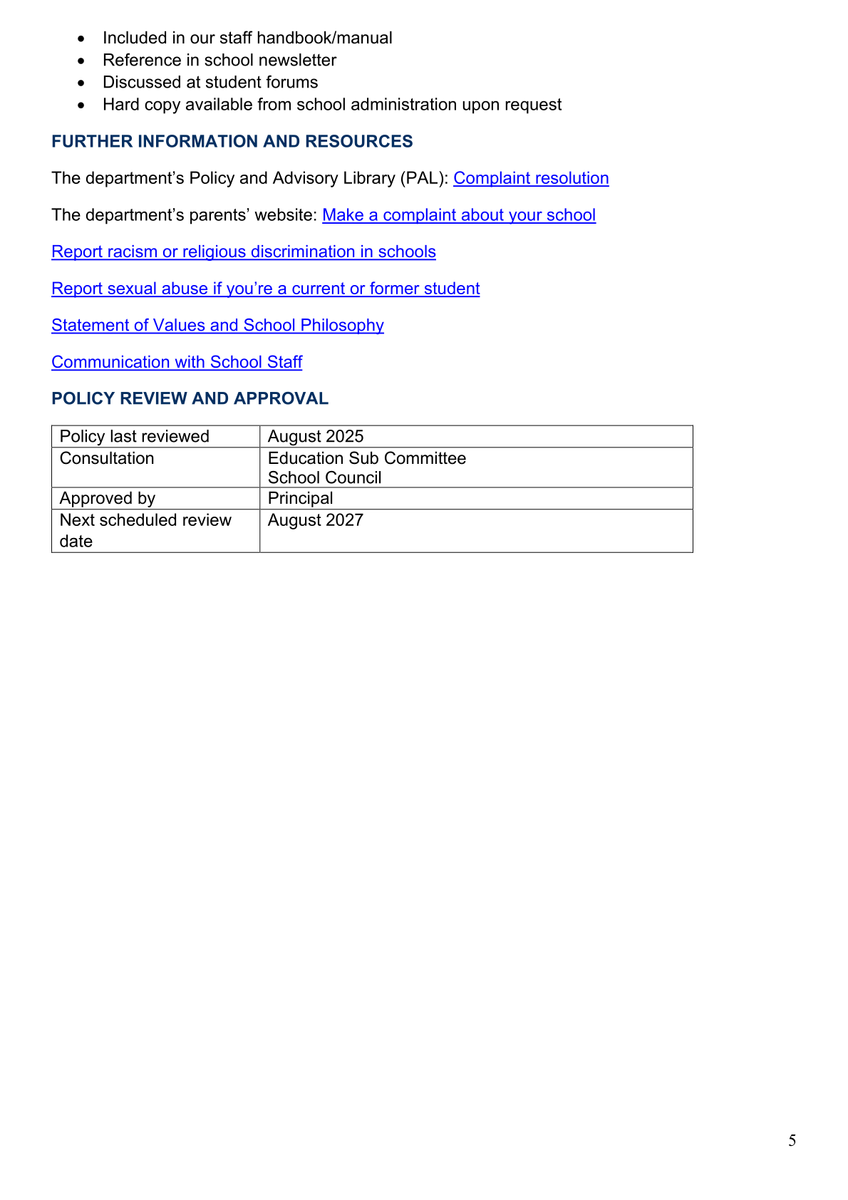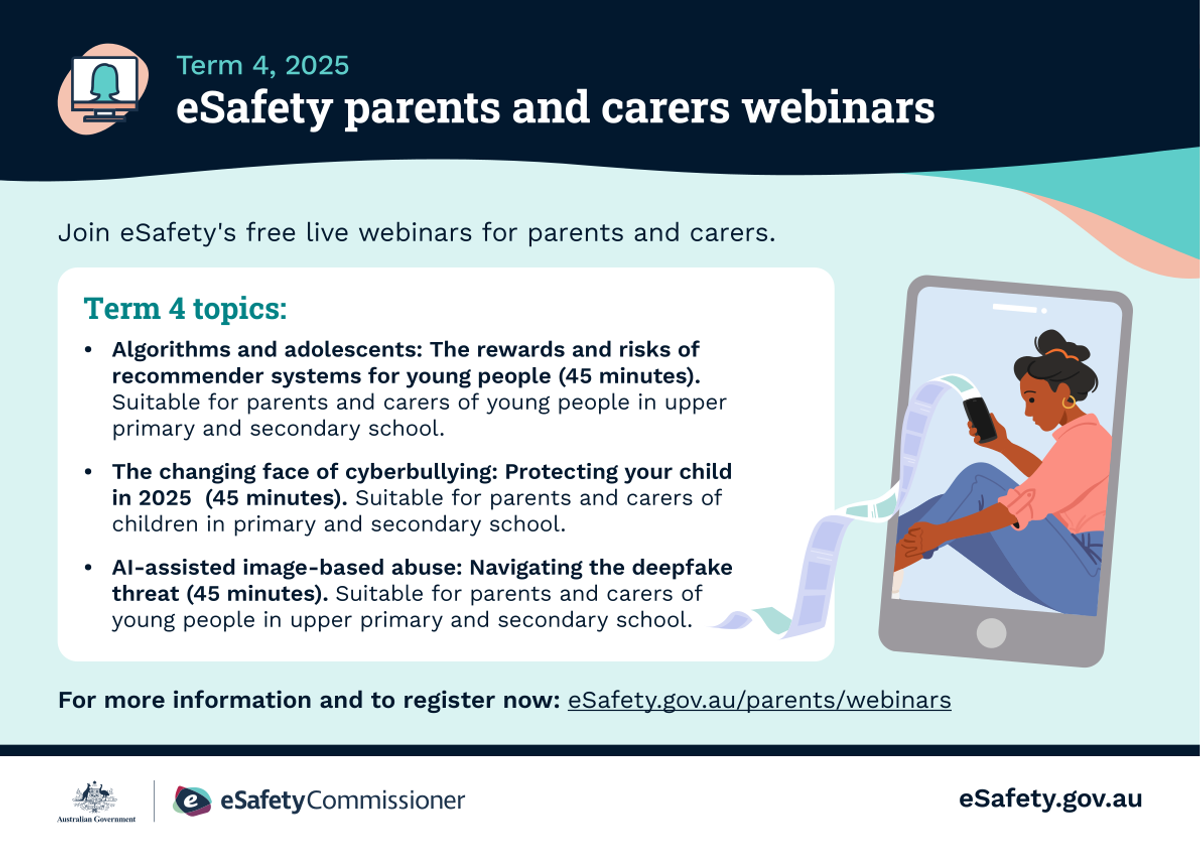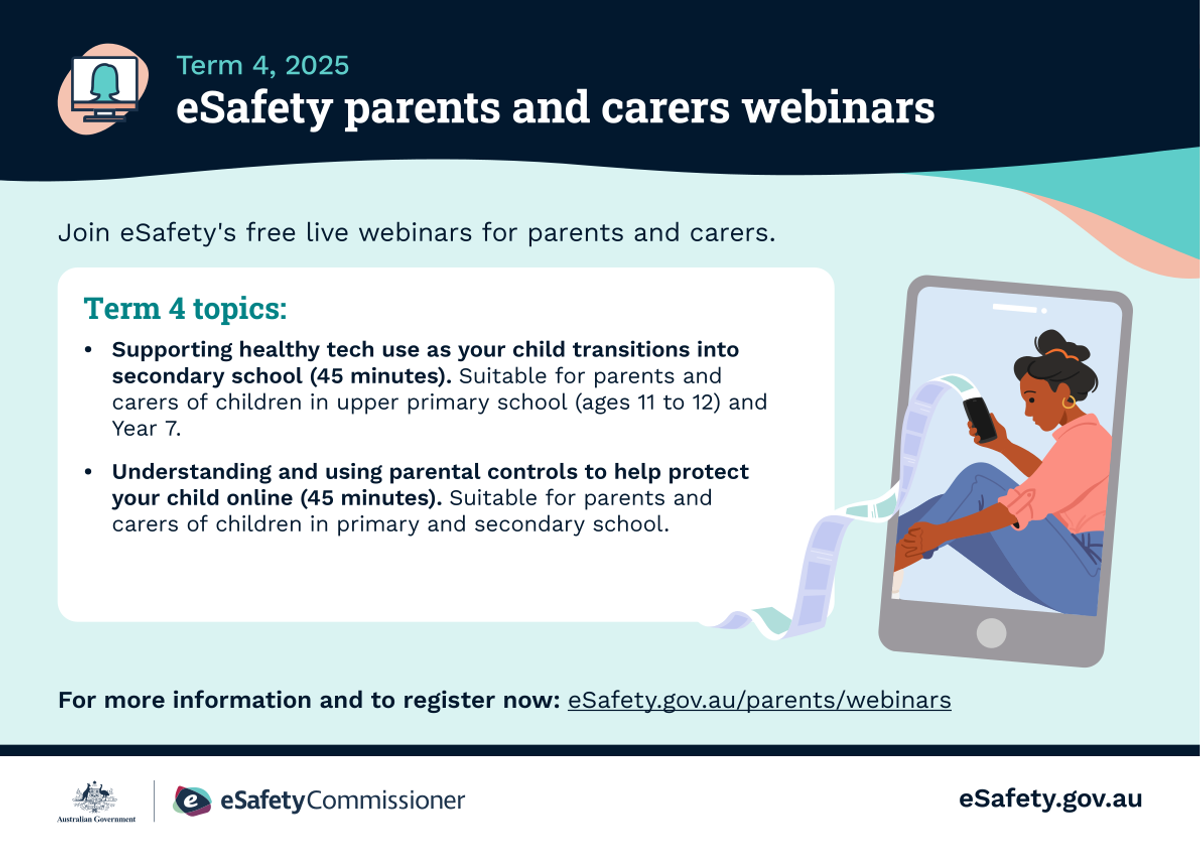Leadership updates and reflections
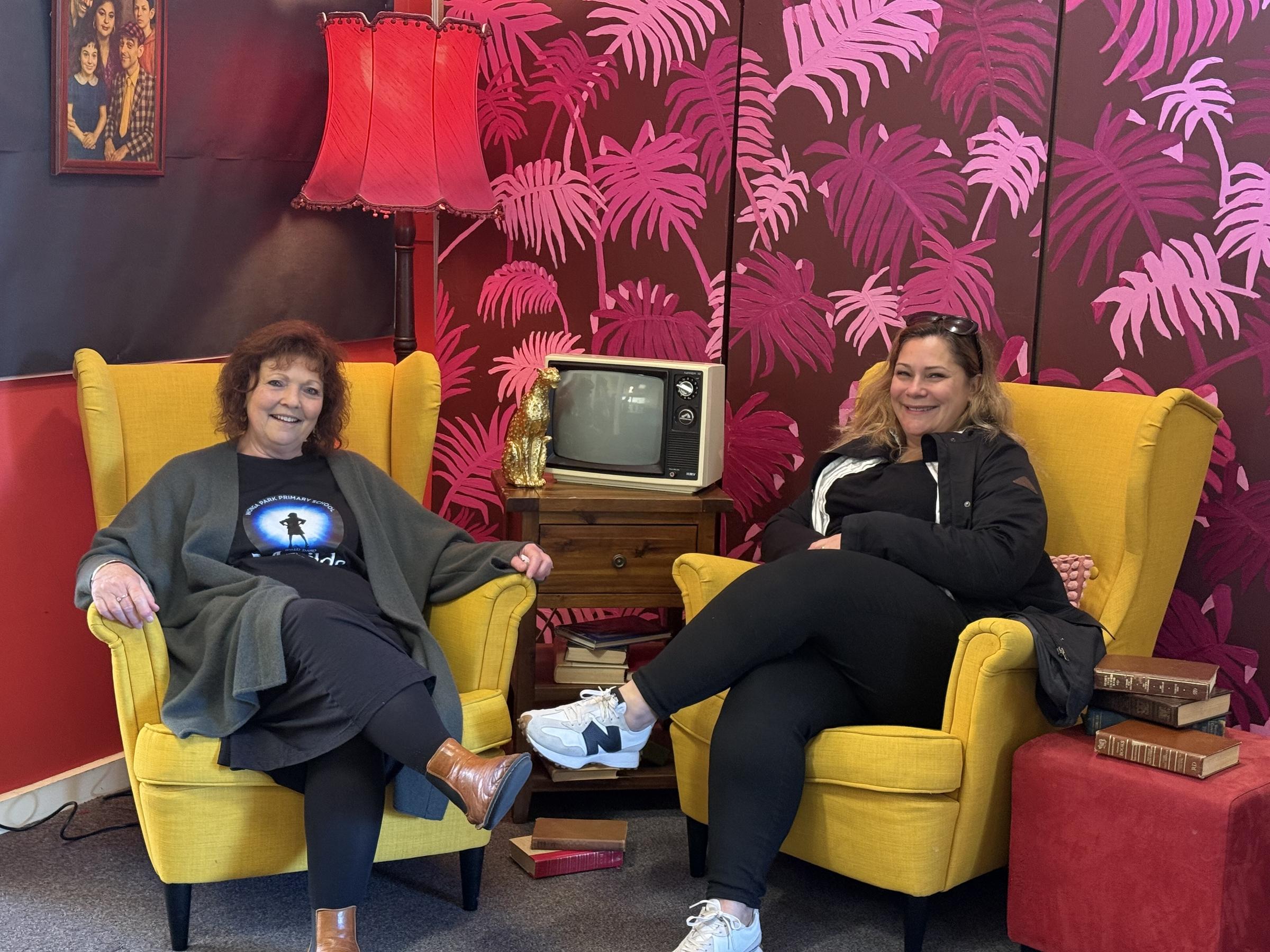
An update from Julie
It may have been a shorter term, but it was jam-packed with wonderful learning experiences. From Grade 4 camp, P-2 Gymnastics, Senior Hooptime, Adolescent Health, Queen Victoria Market excursions to the amazing production of Matilda Jnr., we have seen our students grow and shine. Congratulations to each and every student and a huge thank you to our teachers, support staff and parents for the amazing job they do every day to support our students to flourish.
New t-shirt option coming!
We had an exciting visit last week from First Nations artist, Ky-ya Nicholson Ward. She spent time with us, talking with our students and getting to know our school and what we value so that she can come up with a t-shirt design that truly represents our Wonga Park story. This new t-shirt will become a school uniform option for students from Prep - Grade 6. It will also be available in adult sizes. Ky-ya is a 22 year old Wurundjeri, Dja Dja Wurrung, Ngurai illum Wurrung, German and Irish woman. She is based in Naarm (Melbourne) and is passionate about telling the stories of her ancestors, family and Country. She also uses her art to educate and to advocate political issues around the world. Ky-ya is also an activist, educator, mentor and dancer with Djirri Djirri Cultural Services. If you would like to learn more about Ky-ya and her work, have a look at her website - https://djirringu.com
Wishing everyone a safe and relaxing holiday break. Looking forward to seeing you all in Term 4.
Warm regards
Julie
An update from Adele
Complaints Policy Update
Our Complaints Policy has been updated. The purpose of this policy is to:
• provide an outline of the complaints process at Wonga Park Primary School so that students, parents, carers, and members of the community are informed of how they can raise complaints or concerns about issues arising at our school
• ensure that all complaints and concerns regarding Wonga Park Primary School are managed in a timely, effective, fair, and respectful manner. Please use this link to read our Complaints Policy.
Disability and Inclusion
In this edition of the Wonga Weekly, we are looking into what a social story is.
A Social Story is a short, tailored narrative designed to help children, especially those on the autism spectrum, understand and navigate social situations more confidently.
- Why they work: Many autistic children find it tricky to interpret social cues like body language or facial expressions. Social stories break down these situations into clear, concrete steps; what’s happening, who’s involved, and what’s expected, so children can better prepare and respond.
- Origins & structure: Developed in 1991 by Carol Gray, Social Stories™ are crafted using specific guidelines to be supportive and fact-based. They’re written in a simple, positive tone, often in first or third person, and may include photos or illustrations to reinforce understanding
- When and how to use them: Typically, parents, therapists, or teachers write a story about a particular setting, eg, the playground or the doctor’s office, and read it with the child just before the event. Over time, as the child becomes familiar with the situation, the story can be used less frequently.
- Why they’re helpful: Research indicates Social Stories can improve understanding of social situations and guide more effective responses. They may also reduce anxiety related to unfamiliar events, especially when customised and delivered at the right time.
If you would like more information, there are many great resources you can access, such as the Raising Children Network.
Partnering with Parents
Schools, teachers and parents: building strong partnerships
Raisingchildren.net.au is an Australian parenting website. They have published a great article on the Benefits of a strong parent-school partnership. They share ...
As a parent, you know your child better than anyone else does. Your child’s teachers will want to get to know your child, too.
When you have a strong and respectful partnership with your child’s school and teachers, you’re in a good position to give them information to help your child get the most out of education. You and your child’s teachers can work together to support your child’s learning, development and wellbeing.
When everybody is working together in the best interests of your child, your child is likely to have a positive attitude towards school and experience other benefits, too.
Read the full article by accessing this link.
Online Safety
eSafety – Office of the eSafety Commissioner
This week, we share information from the eSafety Commissioner aboutthe hard-to-have conversations.
Digital technologies are part of life for most children and young people. Talking with them about what they see online, including pornography, can help them understand issues and keep them safe from harm.
These tips for starting the chat can be useful for whatever the age of your child. You can adapt them to your child’s interests, personality, level of development, and maturity. Use this link to read more about this topic.
Term 4 eSafety Commissioner online workshops
The eSafety Commissioner provides free webinars to parents and carers with the knowledge, skills, and tools to support their children to have safe, positive online experiences. Term 4 webinars are listed below:
Algorithms and adolescents: The rewards and risks of recommender systems for young people
Algorithms and AI are influencing how young people experience the online world. This 45-minute webinar explores both the benefits and risks of recommender algorithms, including how they affect the content young people see and what you can do to protect your child from the potential harms. It's suitable for parents and carers of young people in upper primary and secondary school. Learn more about this webinar.
15 October, 3:30 pm
AI-assisted image-based abuse: Navigating the deepfake threat
AI tools are evolving fast – and some are being misused in ways that can harm or exploit children and young people, including through the creation of deepfakes and digitally altered images. This 45-minute webinar covers how these technologies are being used, their impact, and how to support and protect your child. It’s suitable for parents and carers of upper primary and high school students. Learn more about this webinar.
21 October, 12:00 pm
Supporting healthy tech use as your child transitions into secondary school
This 45-minute webinar explores the social pressures, peer influences, and technological challenges young people face as they transition into secondary school. It also offers practical strategies for navigating online friendships and connections to help minimise negative experiences. It's suitable for parents and carers of children in upper primary school (ages 11 to 12) and Year 7. Learn more about this webinar.
18 November, 12:30 pm
Social media age restrictions explained – a guide for parents and carers
From 10 December 2025, certain social media platforms won’t be allowed to let Australian children under 16 create or keep an account. Join our 30-minute information session to understand the changes. Learn more about this webinar.
20 November, 12:30 pm
Sign up for the eSafety Newsletter to receive the latest online safety news, resources, and advice.
Wishing everyone a safe and happy Term 3 break. It's hard to believe that when we return in Term 4, there will only be 11 school weeks left of 2025!
Warm Regards,
Adele
